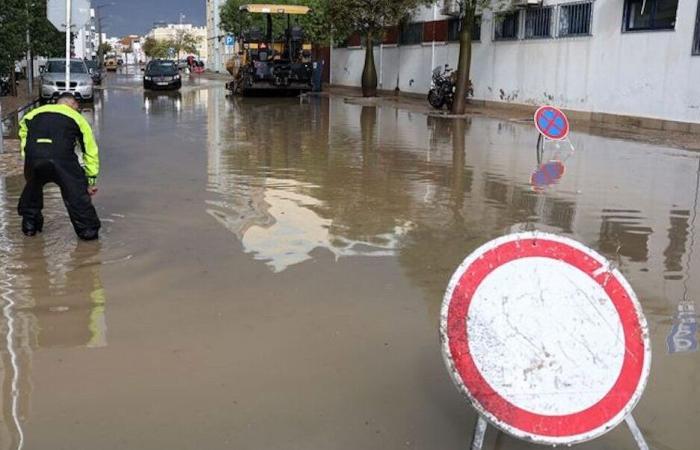In mainland Portugal, at least 26,540 buildings are located in areas susceptible to flooding, according to the 2024 State of Spatial Planning Report (REOT), Público said. This document, coordinated by the Directorate-General for Territory (DGT) and which was under public consultation on the Participa portal until this Friday, warns of the growing degradation of natural resources and the risks associated with territorial planning.
In the Algarve, a region frequently affected by extreme weather phenomena, this problem is particularly relevant. The presence of buildings in risk areas, particularly in riverside areas and close to floodplains, such as in the Ria Formosa and along the Arade River, reflects the history of construction without due consideration to hydrological risks. These situations make the region particularly vulnerable, especially in a context of climate change, which worsens the frequency and intensity of extreme events.
REOT highlights that most of this infrastructure is in areas that should be protected, but that were gradually occupied due to urban pressure and a lack of strategic planning. In the Algarve, accelerated tourism and real estate growth has contributed to construction in areas prone to flooding, compromising the safety of residents and tourists.
Impacts of climate change on the Algarve
The report also highlights that climate change, with rising sea levels and more intense rainfall, poses an additional risk. Recent episodes of urban flooding in cities such as Lagos and Portimão or downtown Albufeira illustrate the challenges faced. These floods have significant economic impacts, affecting tourism, the region's main economic activity, and mainly local infrastructure.
Measures and recommendations
To mitigate risks, REOT suggests measures such as the requalification of river banks, the prohibition of new construction in risk areas and the adaptation of existing infrastructure. Furthermore, it is essential to create local emergency plans and raise awareness among communities about the risks associated with flooding.
The REOT public consultation, accessible through the Participa portal, allowed citizens and organizations to express their concerns and suggestions about land use. The Territory Secretariat reinforces that the objective is to promote sustainable planning, which protects natural resources and guarantees the safety of populations.
In the Algarve, local initiatives, such as strengthening dikes and requalifying retention basins, are already underway, but experts warn that these measures must be complemented by a more integrated national policy. Coordination between municipalities, regional and national governments is seen as essential to face the challenges of territorial planning and the increasing risks of flooding.
With more than 26,500 buildings in vulnerable areas across the country, REOT highlights the urgency of measures to ensure a safer and more resilient future for regions like the Algarve, where impacts can be particularly severe.
Read also: This Portuguese island is the most isolated in Europe, was a refuge for pirates and has more cows than inhabitants






